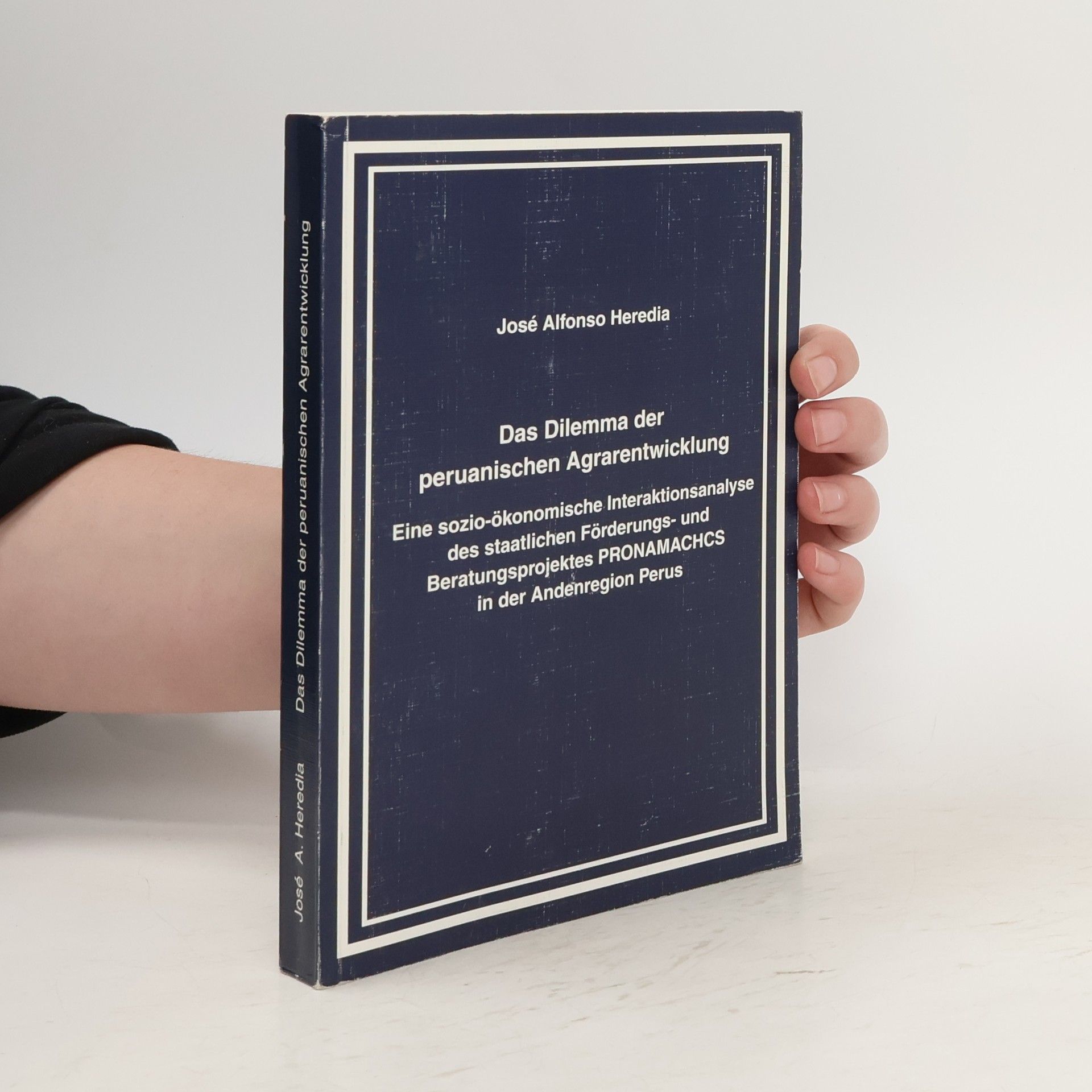Das Dilemma der peruanischen Agrarentwicklung
Autori
Parametre
Viac o knihe
This work deals with the agrarian development projects and programs which are designed and executed by the state within the framework of the PRONAMACHCS* for the Peruvian Andes region. An interactive approach is applied in the study. This state development project is looked upon as a field of interaction of different participants. Therefore its actual functioning, as well as its achievements and failures, depend upon the kind of interaction taking place within the framework of the project and the extent of the eventual joint action in which the different interest groups may engage. To analyse here the problematic nature of interaction within this project, or the situation of strategic interdependence, the theoretical contributions of institutional analysis are applied, particularly game theory, the principal-agent model, and the collective action approach. These are complemented by additional contributions from the fields of organisational, bureaucratic as well as development theories, and by the experience of agrarian politics, agrarian development and extension programs. The specific methodology used to analyse the project is based upon qualitative research methods and several interviews in which the immediate opinion-forming and decision-making processes of the participants play a central role. The line of reasoning of this analysis is intended to complement substantially the existing evaluations of the project, and above all to contribute to the discussion on the possibilities and limitations of the agrarian development and extension programs policies carried out by the state in today's Peru.
Nákup knihy
Das Dilemma der peruanischen Agrarentwicklung, José Alfonso Heredia
- Jazyk
- Rok vydania
- 1997
- Stav knihy
- Dobrá
- Cena
- 21,64 €
Doručenie
Platobné metódy
2021 2022 2023
Navrhnúť zmenu
- Titul
- Das Dilemma der peruanischen Agrarentwicklung
- Jazyk
- nemecky
- Autori
- José Alfonso Heredia
- Vydavateľ
- Köster
- Rok vydania
- 1997
- ISBN10
- 3895742430
- ISBN13
- 9783895742439
- Séria
- Schriften zur internationalen Agrarentwicklung
- Kategórie
- Skriptá a vysokoškolské učebnice
- Anotácia
- This work deals with the agrarian development projects and programs which are designed and executed by the state within the framework of the PRONAMACHCS* for the Peruvian Andes region. An interactive approach is applied in the study. This state development project is looked upon as a field of interaction of different participants. Therefore its actual functioning, as well as its achievements and failures, depend upon the kind of interaction taking place within the framework of the project and the extent of the eventual joint action in which the different interest groups may engage. To analyse here the problematic nature of interaction within this project, or the situation of strategic interdependence, the theoretical contributions of institutional analysis are applied, particularly game theory, the principal-agent model, and the collective action approach. These are complemented by additional contributions from the fields of organisational, bureaucratic as well as development theories, and by the experience of agrarian politics, agrarian development and extension programs. The specific methodology used to analyse the project is based upon qualitative research methods and several interviews in which the immediate opinion-forming and decision-making processes of the participants play a central role. The line of reasoning of this analysis is intended to complement substantially the existing evaluations of the project, and above all to contribute to the discussion on the possibilities and limitations of the agrarian development and extension programs policies carried out by the state in today's Peru.


